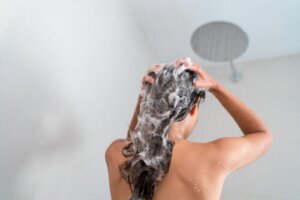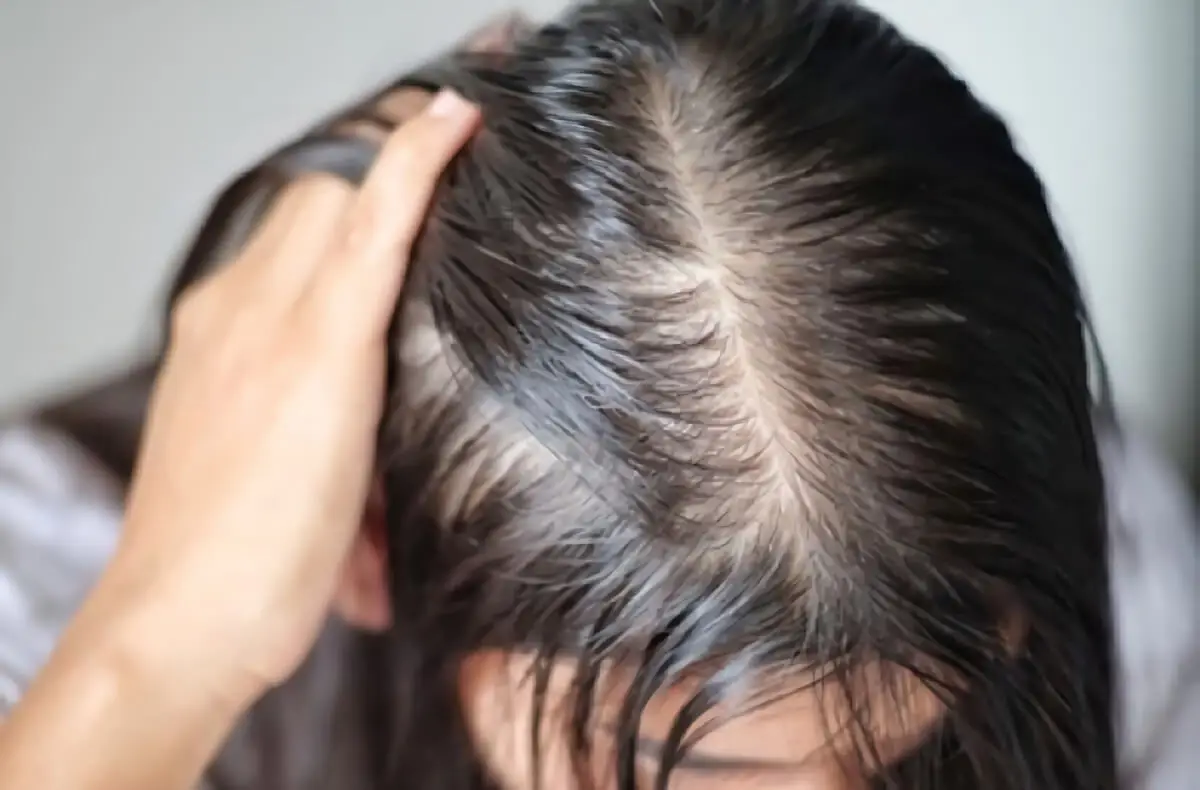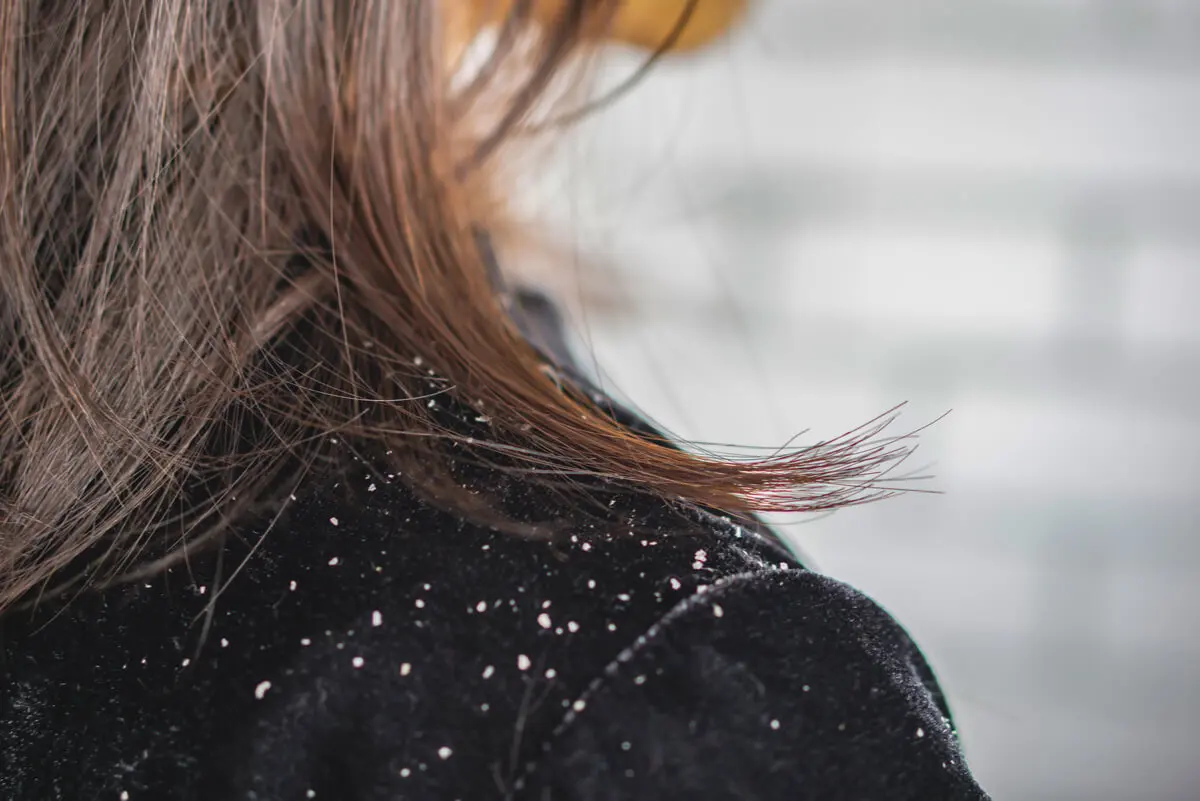Arginine for Hair: What Are its Effects?


Reviewed and approved by the nurse Leidy Mora Molina
The hair needs nutrients, such as arginine, to promote both its appearance and health. You can opt for an endless number of cosmetics that promise hair beauty, but before purchasing any item, it’s always best to check the label to find out if it has the components that your hair needs.
In the particular case of arginine, it’s recommended by dermatologists and stylists to stimulate hair growth. As a text from Professional Pharmacy states, hair is a structure that needs amino acids for replacement.
Arginine is part of these compounds; it acts as a vasodilator and activator of blood flow in the hair follicles. Let’s take a look at some other contributions of this substance to healthy hair.
What is arginine?
L-arginine is the name of an amino acid that contributes to the body in the generation of proteins. According to the Mayo Clinic explanation, this substance is consumable in most protein-rich foods and dietary supplements.
Other ways to benefit from arginine are through topical application and intravenous delivery. It’s associated with treatments that control endocrine gland function and cardiac conditions.
This amino acid is useful in the cosmetic industry for promoting hair development due to improvements in blood flow to the hair follicles. In addition, arginine integrates keratin, which is highlighted as a fundamental hair protein.
We think you may be interested in reading this, too: Check Out These 12 Types of Hair Spray and How to Use Them
The effects of arginine on hair
The main role of arginine in hair is to provide nutrients to the hair bulb. This amino acid also increases the nitric oxide required by the hair strands to absorb minerals.

Here are some additional benefits of arginine.
It prevents hair loss
By reactivating blood microcirculation, nourishing the hair fiber, and preserving hair follicles, arginine makes hair stronger, moisturizes, and softens it. It’s thus less likely to fall out.
It protects the cuticle from chemicals and heat
Chemicals used to make hair dyes, bleaches or straighteners tend to damage the hair. These ingredients increase the porosity of the cuticle and decrease the resistance of the hair fiber, resulting in dull and brittle hair.
Arginine in supplements or topical cocktails reduces cuticle breakage. It also rescues hair from conditions caused by the continuous use of irons, hair dryers, and curling irons.
These thermal instruments, together with exposure to the sun, deteriorate the hair strands. With the amino acid, you boost hair regeneration and protect your hair from the ravages of heat.
It repairs fragile hair
Arginine has hair repair properties that are capable of stopping the inappropriate development of follicles. It thus reduces the damage that hair can suffer from an affected root.
It preserves hair color
Some hair dyes contain hydrogen peroxide or ammonia, which damages the natural proteins and oils in the hair structure. By replacing these chemicals with L-arginine, the hair doesn’t lose strength and preserves the pigment better.
Research reported by the Salesian Polytechnic University of Quito showed that dyes containing arginine as an active ingredient offer good effects, without differing greatly in the intensity of the color formulated with other ingredients. At the same time, the experiment indicates that, in monitoring subsequent washes, arginine achieved pigment protection.
Like this article? You may also like to read: 13 Makeup and Hairstyle Tricks to Save Time in the Mornings
It eliminates dandruff
Thanks to its antifungal and antibacterial abilities, arginine helps to eliminate or prevent dandruff. Some studies suggest that compounds derived from this amino acid are ideal for combating microorganisms that destabilize hair cells.
A study reviewed by the Faculty of Exact Sciences of the National University of La Plata highlights that arginine inhibits the growth and adhesion of yeasts, also proving its fungicidal activity. On the other hand, dandruff causes problems such as itching and flaking of the scalp.
When scratching this delicate skin, it’s possible to injure it. If this happens, oral and topical arginine have healing and pain-relieving powers, as a publication in the Revista Enfermería Castilla y León comments.

Natural sources of arginine for hair
As is the case for certain dietary supplements, several foods also provide this amino acid, so you should include them in your regular diet:
- Eggs: Egg yolks are rich in arginine; egg whites also contain arginine, but to a lesser extent.
- Vegetables: Spinach, onions, garlic, and seaweed are included in the list of vegetables that provide the body with L-arginine.
- Fruits: Kiwi, watermelon, and avocado are potential sources of arginine and other vitamins, minerals, and antioxidants.
- Nuts: Hazelnuts and almonds in particular contain arginine. Consuming them also supports optimal cholesterol levels and brain activity.
- Meat and fish: These proteins are rich in L-Arginine and other amino acids. However, your intake of red meat has to be moderated for good health.
Products with arginine for hair
In addition to foods and supplements with arginine, there are cosmetic sources, through hair masks and creams, shampoos, conditioners, and serums. Formulas with this amino acid often also combine other ingredients, such as biotin, vitamin B7, and plant stem cells.
The key is to follow a balanced and healthy diet first. Then, consult a dermatologist about which product would be best for adding arginine in supplement form.
All cited sources were thoroughly reviewed by our team to ensure their quality, reliability, currency, and validity. The bibliography of this article was considered reliable and of academic or scientific accuracy.
- Carretero Salvador T, Romo Sánz M. La L-arginina: el aminoácido de las heridas. Revista Enfermería Castilla y León. Vol. 4. Núm. 2. España; 2012. http://www.revistaenfermeriacyl.com/index.php/revistaenfermeriacyl/article/view/85
- Fait M, Grillo P, Morcelle S, Mylek S. Actividad Antifúngica y antiadhesiva de tensioactivos derivados de argininas frente a levaduras del género Candida. Facultad de Ciencias Exactas. Universidad Nacional de la Plata. Argentina; 2018. https://bdigital.uncu.edu.ar/objetos_digitales/13105/17-ciencia-tecnologa-e-innovacin-mylek-silvina-unlp.pdf
- L-arginina. Clínica Mayo. Estados Unidos; 2021. https://www.mayoclinic.org/es-es/drugs-supplements-l-arginine/art-20364681
- Machado Pillajo G. Quinoa (Chenopodium quinoa), amaranto (Amaranthus caudatus) y arginina como ingredientes protectores en tintes para cabello. Tesis para la Maestría en Ciencias y Tecnologías Cosméticas. Universidad Politécnica Salesiana. Sede Quito. Ecuador; 2015. https://dspace.ups.edu.ec/bitstream/123456789/7790/1/UPS-QT06414.pdf
- Martín Aragón M. Nutrición y salud de la piel y el cabello. Consejo farmacéutico. Farmacia Profesional. Vol. 23. Núm. 1. pp. 58-63. España; 2009. https://www.elsevier.es/es-revista-farmacia-profesional-3-articulo-nutricion-salud-piel-el-cabello–13132077
This text is provided for informational purposes only and does not replace consultation with a professional. If in doubt, consult your specialist.








